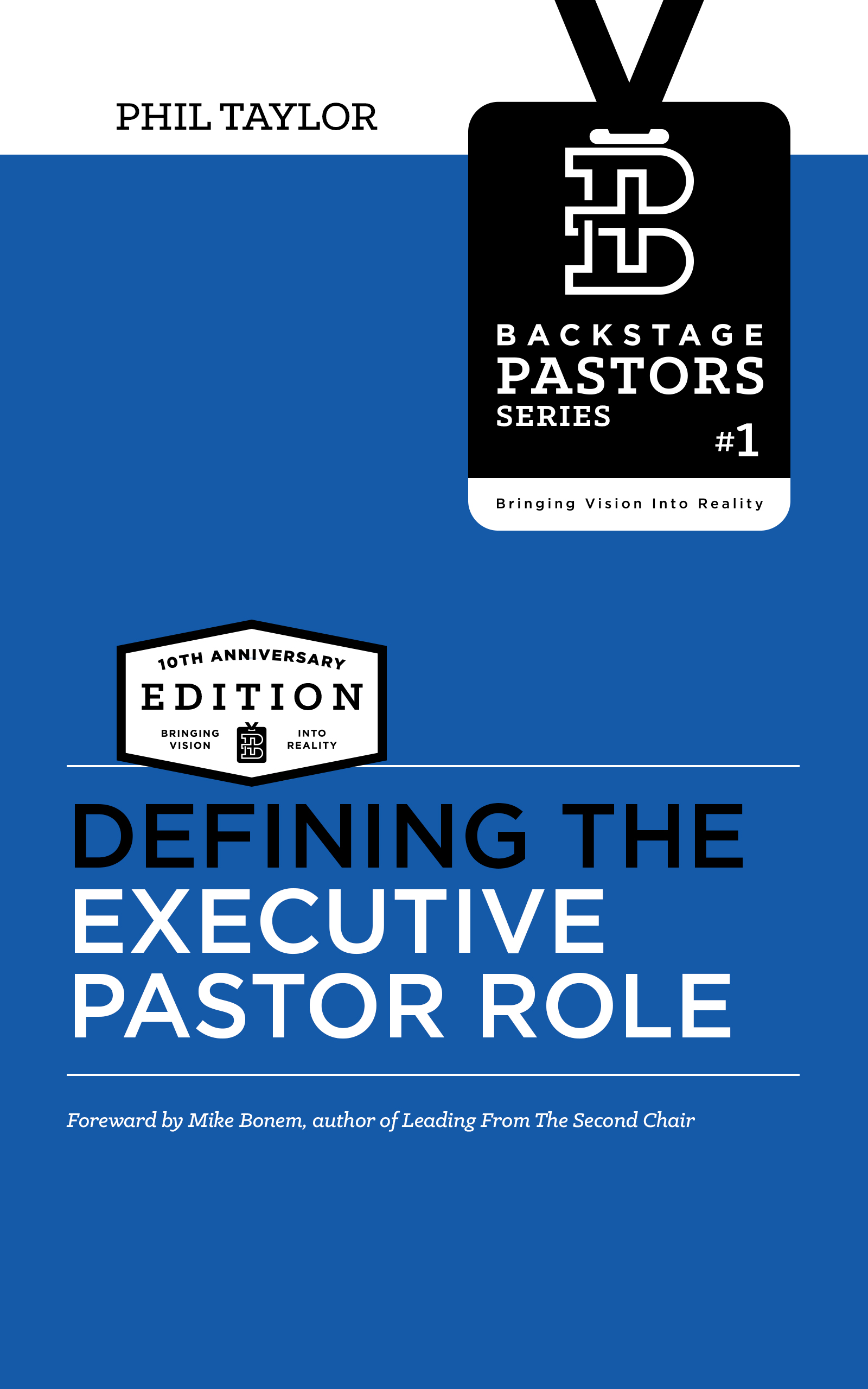Having spent 17 years in the Executive Pastor role, I’ve had the privilege of getting to know many of my peers in ministry. At the risk of oversimplification, I have noticed that most XPs (shorthand for Executive Pastor) fall into one of two categories. They will either be an Executive pastor with a capital “E” and lower case “p”, or, they will be an executive Pastor with a lower case “e” and a capital “P”. Does that make sense? Executive Pastors seem to always lean on one side or the other and we often lead out of this tendency. We either lead as Executives who happen to be serving in a pastoral role or as Pastors who happen to be serving in an executive role. This is what I call your Origin of Leadership. The question I want to help you ask yourself is this: “Am I a “Capital E” guy, or a “Capital P” guy?”
It has been my experience that the guy who leaves the business world to become an XP will typically lean on the Executive side of the equation, while the guy who primarily has a vocational ministry background or education will lean towards the Pastor side. Both are effective at what they do but will obviously do the job differently, and each will bring their own strengths and weaknesses to the table.
The capital “E” guys will gravitate towards policies and procedures and find themselves issuing memos on the number of sodas and juice the staff may consume in one day from the office kitchen. The capital “P” guys will find themselves enjoying counseling and shepherding in the midst of what was intended to be a performance evaluation meeting. The capital “E” guys will enjoy a more hands on approach to managing things like human resources, budgeting and capital campaigns while the capital “P” guys will find the experts in those areas and lean on them, functioning in more of a catalyst role. The capital “E” guys will likely have an intimate knowledge and love of Excel formulas, while the capital “P” guys will be trying to figure if they have time to teach a theology class on the side.
So is one better than the other? Well, our pride would tell us that whatever type of XP I am is the best kind of XP. I don’t think that’s right. Don’t forget that administration is a supernatural gift from the Holy Spirit! I think the better question to ask is “Which type of XP does my church need?” But even after you figure out the answer to that question, and you get the right team in place, there will still be gaps. So what do you do when the giftedness of the XP still falls short of the full needs of the church?
- Staff to Your Weaknesses
Don’t be afraid to hit the ceiling in a particular area of your stated tasks. It’s OK to say you are not the ultimate best fit for some parts of your job. Staff to our weaknesses through hiring staff or recruiting key volunteers to fit the size and needs of your church.
- Become Friends With Executive Pastors Who Are Different Than You.
Create friendships with other XP’s who are strong where you tend to be weak. See, you don’t have to know how to make a great excel spreadsheet, but you do need to understand how to read one. If you don’t know what it means when there is a parenthesis around a number, you are in rough shape as an XP! A capital “P” guy needs to have a buddy who is a capital “E” guy and vice-versa.
- Find or Create an Executive Pastor Roundtable
I’ve tried to develop friendships with many different types of Executive Pastors, each having his own strengths and expertise. As such, I’ve learned to rely on each of them in different ways. I’ve learned which ones to call when I was thinking through a new policy or structural change. I’ve learned who to call with HR matters, facility issues, legal challenges, technology roadblocks, etc. I’ve figured out who had more experience and knowledge than me, and I sought those people out, paid for their lunch and learned a lot. Eventually, I created an Executive Pastor Roundtable or Cohort style gathering. Interestingly, while many Executive Pastors want this sort of interaction with other Second-Chair Leaders, they are not always proactive about seeking it out. As a result, I have consistently worked to create an Executive Pastor Roundtable wherever I have lived that meets quarterly, or bi-monthly for fellowship and guided discussions that address a need in the group. We’ll pick an issue like hiring and firing, digital footprints (branding, social media, websites), facility expansion, or multi-site strategy . . . whatever the group wants to discuss. Sometimes we keep it really simple and do on the spot coaching in each other’s ministries. It is extremely effective.
The bottom line: While you may lean to one side or the other on the capital E vs. capital P question, you don’t really have the luxury of staying in your origin of leadership. Ultimately, you have to be a little of both and be smart enough to know who you are not. So, staff to your weaknesses, cultivate relationships with other Executive Pastors and keep on learning!
This article is an excerpt from the book Defining the Executive Pastor Role by Phil Taylor. Available on Amazon in paperback and E-Book.











